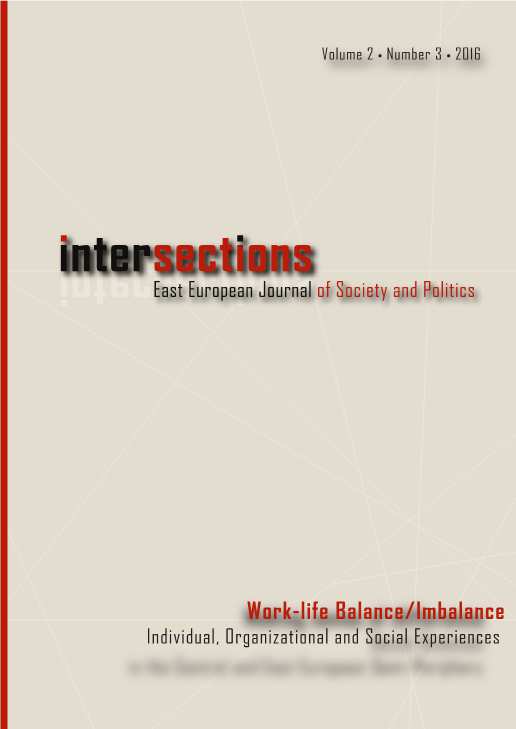Who Benefits More from a Balanced life? Gender Differences in Work-life Balance and Satisfaction with Life in Eight Post-communist Countries
Who Benefits More from a Balanced life? Gender Differences in Work-life Balance and Satisfaction with Life in Eight Post-communist Countries
Author(s): Dóra Bari, Péter RóbertSubject(s): Gender Studies, Human Ecology
Published by: MTA Társadalomtudományi Kutatóközpont Kisebbsegkutató Intézet
Keywords: subjective well-being; life satisfaction; work-life balance; post-communist countries; gender differences
Summary/Abstract: The purpose of the research described in this paper is to investigate the gender differences in the relationship between perceived tension with work-life balance and satisfaction with life in eight post-communist regions (the Czech Republic, East Germany, Estonia, Hungary, Poland, Slovakia, Slovenia and Ukraine). The research investigates 1) how having a balanced life contributes to the subjective well-being of individuals (measured according to level of satisfaction with life), and 2) the variability which exists on a country level with satisfaction with life and satisfaction with work-life balance, and the relationship between these two attitudes. Data from the fifth round of the European Social Survey is used in the analysis, to which only respondents active in the labor force were included (N=6410). The paper presents descriptive statistics about country differences in the level of satisfaction with life and work-life balance. Following this, OLS regression models are used to predict satisfaction with life. Results reveal that the perceived balance between work and other elements of life has a significant impact on satisfaction with life, and no gender difference is detectable in this regard. Nevertheless, more highly educated individuals have greater subjective well-being, and the impact is stronger for women than men. Between-country differences are also moderate.
Journal: Intersections. East European Journal of Society and Politics
- Issue Year: 2/2016
- Issue No: 3
- Page Range: 21-41
- Page Count: 21
- Language: English

